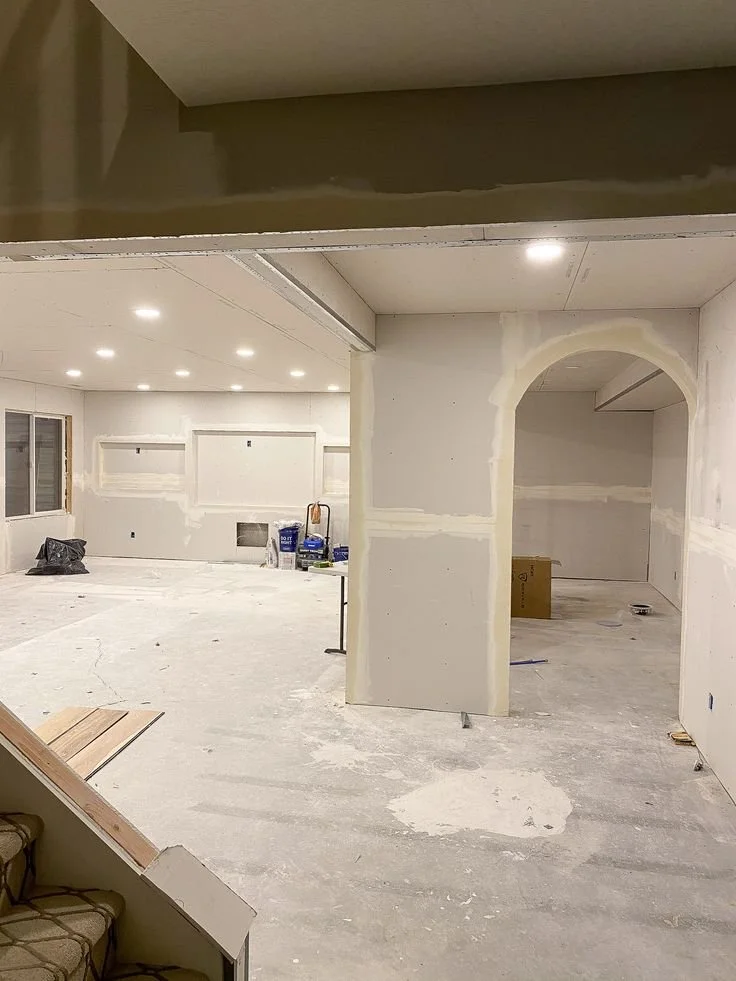Signs That The Foundation Of Your Home Needs Repair
As a homeowner, it is crucial to stay vigilant about the health of your home's foundation. Any issues with the foundation can lead to expensive repairs and pose risks to the overall structure of your home as well as its inhabitants.
Recognizing early warning signs of your home’s foundation being in need of repair is crucial in order to take timely corrective action.
In this article, we share common signs that indicate your home's foundation may need repair:
No. 1
Cracks in the Home
One of the most obvious signs of foundation problems is the presence of cracks in the interior or exterior walls of your home. These cracks can appear suddenly or gradually and may indicate that the foundation has shifted or settled unevenly.
Cracks in the corners of the rooms are particularly concerning because while hairline cracks can be fixed cosmetically, wider gaps that continue to spread can show movement in the foundation. You will need a professional to come in and help you to differentiate between the superficial cracks caused by natural settling of a house and the deeper structural problems.
Where to look for cracks in the home:
Walls: Cracks in walls can be common due to the settling of a house over time. They are often found near doors, windows, or corners.
Ceilings: Ceiling cracks can be a result of the natural movement of the house or even water damage. They are usually found in older homes.
Floors: Cracks in the floor can occur due to structural issues, water damage, or poor installation. They are commonly seen in basements or areas with heavy foot traffic.
Foundation: Cracks in the foundation can be a serious issue and should be inspected by a professional. They can be caused by shifts in the soil or water damage.
No. 2
Termite damage
Look out for blistering or darkening of wood surfaces, as well as hollow-sounding or easily punctured wood, as these are common signs of termite damage in homes. Additionally, mud tubes or piles of wings near doors or windows are indicative of termite activity and should be addressed promptly.
Here are signs your foundation needs termite repair:
Hollow-sounding wood: If you tap on wooden surfaces in your home and they produce a hollow sound, it could indicate termite damage. Termites eat wood from the inside out, leaving a thin veneer that can sound hollow when tapped.
Sagging or buckling floors: Termite damage can weaken the structural integrity of your floors, causing them to sag or buckle under pressure. If you notice any changes in the levelness or stability of your flooring, it could be a sign of termite infestation.
Mud tubes: Termites often build mud tubes as a means of traveling between their nests and a food source. These pencil-sized tunnels can be found along your foundation walls, indicating a termite presence that requires immediate attention.
Discarded wings: After swarming, termites shed their wings, leaving behind piles of discarded wings near windowsills, doors, or other entry points. Finding these wings indoors could signal an ongoing termite infestation.
Tight-fitting doors or windows: As termites consume wood near entry points, doors and windows may begin to fit more tightly or become difficult to open or close. This change in functionality could be attributed to termite activity affecting the surrounding wood.
If you've noticed signs of termite damage in your home, it's crucial to schedule a termite inspection as soon as possible. Termite infestations can cause severe structural damage if left untreated, so taking prompt action is essential to protect your property.
A professional termite control inspection will help identify the extent of the infestation, locate termite entry points, and recommend the most effective treatment options. By addressing the issue promptly, you can prevent further damage and ensure the safety and integrity of your home.
No. 3
Uneven Floors
If you notice that your floors are sloping or sagging in certain areas, it could be a sign of foundation issues. Uneven floors are often caused by the foundation settling unequally, leading to a shift in the support of the floor structure.
No. 4
Sticking Doors and Windows
Doors and windows that suddenly start sticking or have difficulty opening and closing smoothly can be a sign of foundation problems. As the foundation shifts, it can cause the door and window frames to become misaligned, making them harder to operate.
No. 5
Gaps Around Windows and Doors
Another indication of foundation issues is the presence of gaps around windows and doors. These gaps can allow air and moisture to seep into your home, leading to energy inefficiency and potential water damage.
No. 6
Bowing or Leaning Walls
Walls that are bowing inward or outward are a serious red flag for foundation problems. This bowing can be a result of the foundation shifting and can compromise the structural integrity of your home.
No. 7
Water Damage
Excess moisture around the foundation or in the basement can lead to water damage and mold growth. If you notice water pooling around your home's foundation or dampness in the basement, it could be a sign of foundation problems.
No. 8
Chimney Leaning
If your chimney is visibly leaning away from the house or showing signs of separation from the structure, it could be due to foundation issues. A leaning chimney can be dangerous and should be inspected by a professional immediately.
No. 9
Cracks in the Floor
Cracks in the basement or concrete slab floor can indicate that the foundation is settling unevenly or experiencing pressure from the soil beneath. These cracks should be evaluated to determine the extent of the damage.
No. 10
Exterior Brick Cracks
For homes with brick exteriors, cracks in the bricks or mortar joints can be a sign of foundation problems. As the foundation shifts, it can cause the exterior walls to crack and shift, compromising the stability of the structure.
Takeaways
Ignoring the signs of foundation issues can lead to costly home repairs and structural damage to your home. If you notice any of these signs, it is essential to consult with a professional foundation repair specialist to assess the problem and recommend the appropriate solutions. Early intervention can help prevent further damage and ensure the stability and safety of your home for years to come.






























